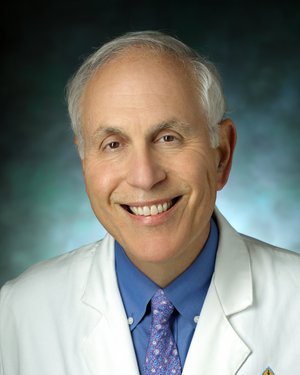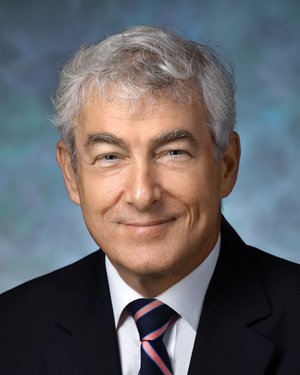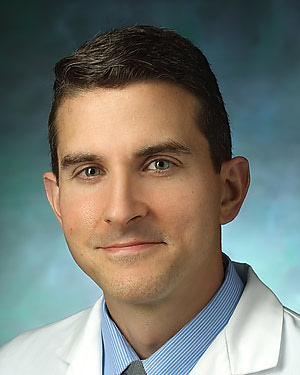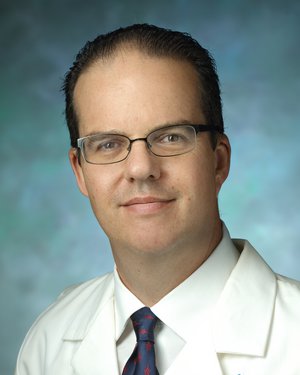Research Lab Results
-
Justin Bailey Lab
We study human B cells and neutralizing antibody responses against hepatitis C virus (HCV), hepatitis B virus (HBV), SARS-CoV-2, and respiratory syncytial virus (RSV). Our overarching hypothesis is that understanding the B cell response in individuals who naturally control infections, and those who have been vaccinated, can help us to understand the basic biology behind successful immune responses, leading to design of more effective vaccines. A particular technical strength of our laboratory is high dimensional flow cytometric analysis of antigen-specific B cells, which allows us to phenotype these rare cells, and also to sequence B cell receptor (BCR) repertoires and isolate virus-neutralizing monoclonal antibodies (mAbs). -
Jonathan Zenilman Lab
The Jonathan Zenilman lab conducts research related to sexually transmitted diseases (STDs). We are working to develop biological markers for sexual behavior to use in other research. The lab studies sexual risk behaviors in highly vulnerable populations and studies datasets from the Baltimore City Health Department to understand STD trends and behaviors. Additionally, we study nosocomial infections at Johns Hopkins Bayview Medical Center, with a focus on developing an antimicrobial control program. We also conduct clinical research related to the natural history and microbiology of chronic wounds in the outpatient setting.
-
Jantzie Lab
Dr. Jantzie, associate professor, received her Ph.D. in Neurochemistry from the University of Alberta in 2008. In 2013 she completed her postdoctoral fellowship in the Department of Neurology at Boston Children's Hospital & Harvard Medical School and became faculty at the University of New Mexico. Dr. Jantzie then joined the faculty Departments of Pediatrics (Neonatal-Perinatal Medicine) and Neurology at Johns Hopkins University and the Kennedy Krieger Institute in January 2019. Her lab investigates the pathophysiology of encephalopathy of prematurity, and pediatric brain injury common to infants and toddlers. Dr. Jantzie is dedicated to understanding disease processes in the developing brain as a means to identifying new therapeutic strategies and treatment targets for perinatal brain injury. Her lab studies neural substrates of cognition and executive function, inhibitory circuit formation, the role of an abnormal intrauterine environment on brain development, mechanisms of neurorepair and microglial activation and polarization. Using a diverse array of clinically relevant techniques such as MRI, cognitive assessment, and biomarker discovery, combined with traditional molecular and cellular biology, the Jantzie lab is on the front lines of translational pediatric neuroscience.?
-
Green Group
The Green Group is the biomaterials and drug delivery laboratory in the Biomedical Engineering Department at the Johns Hopkins University School of Medicine. Our broad research interests are in cellular engineering and in nanobiotechnology. We are particularly interested in biomaterials, controlled drug delivery, stem cells, gene therapy, and immunobioengineering. We are working on the chemistry/biology/engineering interface to answer fundamental scientific questions and create innovative technologies and therapeutics that can directly benefit human health.
-
GI Early Detection Biomarkers Lab
Dr. Meltzer is an internationally renowned leader in the molecular pathobiology of gastrointestinal malignancy and premalignancy. He invented molecular methods to detect loss of heterozygosity in tiny biopsies, triggering an avalanche of research on precancerous lesions. He was the first to comprehensively study coding region microsatellite instability, leading to the identification of several important tumor suppressor genes. He performed several groundbreaking genomic, epigenomic and bioinformatic studies of esophageal and colonic neoplasms, shifting the GI research paradigm toward genome-wide approaches. He directed an ambitious nationwide validation study of DNA methylation-based biomarkers for the prediction of neoplastic progression in Barrett’s esophagus. Dr. Meltzer founded and led the Aerodigestive Cancer and Biomarker Interdisciplinary Programs at the University of Maryland, also becoming associate director for core sciences at that school’s Cancer Center. He currently holds an endowed professorship and is the director of GI biomarker research at Johns Hopkins. The laboratory group focuses its efforts on the molecular genetics of gastrointestinal cancers and premalignant lesions, as well as on translational research to improve early detection, prognostic evaluation, and treatment of these conditions. Below, some examples of this work are described.
-
GI Biomarkers Laboratory
The GI Biomarkers Laboratory studies gastrointestinal cancer and pre-cancer biogenesis and biomarkers. The lab is led by Dr. Stephen Meltzer, who is known for his research in the molecular pathobiology of gastrointestinal malignancy and premalignancy. Research in the lab has led to several groundbreaking genomic, epigenomic and bioinformatic studies of esophageal and colonic neoplasms, shifting the gastrointestinal research paradaigm toward genome-wide approaches.
-
Christopher A. Ross Lab
Dr. Ross and his research team have focused on Huntington's disease and Parkinson's disease, and now are using insights from these disorders to approach more complex diseases such as schizophrenia and bipolar disorder. They use biophysical and biochemical techniques, cell models, and transgenic mouse models to understand disease processes, and to provide targets for development of rational therapeutics. These then can provide a basis for developing small molecule interventions, which can be used both as probes to study biology, and if they have favorable drug-like properties, for potential therapeutic development. We have used two strategies for identifying lead compounds. The first is the traditional path of identification of specific molecular targets, such as enzymes like the LRRK2 kinase of Parkinson’s disease. Once structure is known, computational approaches or fragment based lead discovery, in collaboration, can be used. The second is to conduct phenotypic screens using cell models, or in a collaboration, natural products in a yeast model. Once a lead compound is identified, we use cell models for initial tests of compounds, then generate analogs, and take compounds that look promising to preclinical therapeutic studies in animal models. The ultimate goal is to develop therapeutic strategies that can be brought to human clinical trials, and we have pioneered in developing biomarkers and genetic testing for developing strategies.
-
Cardiovascular Stem Cell Program
The research program aims to advance cardiovascular biology and medicine by focusing on pluripotent stem cell-based modeling and therapy and by nurturing future leaders in regenerative medicine. -
Drew Pardoll Lab
The Pardoll Lab focuses on the regulation of antigen-specific T cell responses and studies approaches to modify these responses for immunotherapy. Pardoll has a particular interest in cancer immunology and his lab’s studies on basic immunologic mechanisms have led to the development and design of a number of cancer vaccines and discovery of key checkpoint ligands and receptors, such as PD-L2, LAG-3 and neuritin, many of which are being targeted clinically. Our primary pursuits are discovering and elucidating new molecules that regulate immune responses, investigating the biology of regulatory T cells, and better understanding the specific biochemical signatures that allow a patient’s T cells to selectively target cancer cells.
-
Eberhart, Rodriguez and Raabe Lab
Utilizing a combination of tissue-based, cell-based, and molecular approaches, our research goals focus on abnormal telomere biology as it relates to cancer initiation and tumor progression, with a particular interest in the Alternative Lengthening of Telomeres (ALT) phenotype. In addition, our laboratories focus on cancer biomarker discovery and validation with the ultimate aim to utilize these novel tissue-based biomarkers to improve individualized prevention, detection, and treatment strategies.



